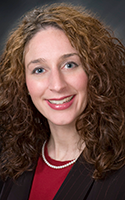By Ernst Lemothe Jr.

Just like healthcare, the nursing profession has seen dramatic shifts over the past decade. Prevention has furthered elevated the profession. While challenges remain, nurses are excited about the evolution of their careers. “The nursing profession is one of my favorite topics,” said AnneMarie Walker-Czyz, senior vice president of operations at St. Joseph’s Health in Syracuse. “We are here to protect and help people heal every day, which is what makes nursing one of the most trusted professions.”
Here are five ways the role of nursing is changing in today’s healthcare environment.
1 More education and training
Like many jobs, employees are being asked to expand their competency in various areas. When it comes to nursing, that involves additional education and training that was not previously part of the job description. For example, over the last several years, nurses have been expected to come in with a bachelor’s degree even for entry level positions. While that is not a standard requirement nationwide, it has become the assumed expectation. There has been research proving that registered nurses with bachelor’s degrees have better patient outcomes.
“Healthcare is changing quickly and often it is changing on the backs of nurses,” she said. “With the extra layer of education, we can even better meet all of our patients’ basic needs. Having that broader level of education makes sure we can treat the whole person and that we have even a higher level of critical thinking ability.”
2 Nursing at home
In an attempt to help people who may need the most, many nurses are starting to treat people at home. The term “population health” and the idea of higher patient quality and the lowest cost has shifted the mentality that patients always have to be in the hospital. Any medical expert will actually tell you the longer a patient is in a hospital setting, the higher the likelihood of something going wrong such as infections or worse outcomes.
“The health care movement is going to the direction of being with people outside the hospital setting,” said Walker-Czyz, who helped St. Joseph achieve “magnet” hospital status, one of the highest distinctions in healthcare. “We have found that keeping and treating people in their home helps people have a better outcome.”
3 Level of responsibility
As they say, with great power comes great responsibility and nurses are having more responsibility than ever before. Whether that is the expanding role of nurse practitioners or doing more with less, nurses are taking a greater role in everyday care. Nurses are also taking a greater role in teaching one another and guiding patient care out of the hospital by being nurse navigators and nurse coaches. In the past, patients would be discharged and possibility left to their own devices with their families focused on the overall care.
“For a number of patients that have chronic conditions, it is essential to have a nurse navigator who can give them the roadmap to good health as well as check in on them,” said Walker-Czyz. “We identify certain patients and we check on them daily, weekly and monthly depending on their health status. Sometimes we do home visits. That level of connection has really been shown to make a difference.”
4 Nursing shortage
You’ve likely heard about the “nursing shortage” for years now, and perhaps you think it’s been resolved. However, registered nurses are near the top of the list when it comes to employment growth, according to the American Nurses Association. But there is an expected bubble that will burst. The U.S. is projected to experience a shortage of RNs that is expected to intensify as baby boomers age and the need for health care grows. Compounding the problem is the fact that nursing schools across the country are struggling to expand capacity to meet the rising demand for care given the national move toward healthcare reform.
“We know there will be a shortage on the horizon,” Walker-Czyz added. “Things are changing very quickly and we need more nurses especially who have a broader level of competency. Plus, we have to work on retaining the nurses that we have.”
5. Creating specialized plans
It’s a simple concept; everyone is different. Healthcare is starting to put together even more individualized service plans for patients in order to create even better outcomes.
“That is really how we’re going to improve services and get phenomenal traction and results,” Walker-Czyz said. “Having a professional nurse focus on delivering the best outcomes for one patient at a time is the best method. We want to make sure that we help patients focus on taking care of themselves and not simply using the emergency department as their primary care physician.”
